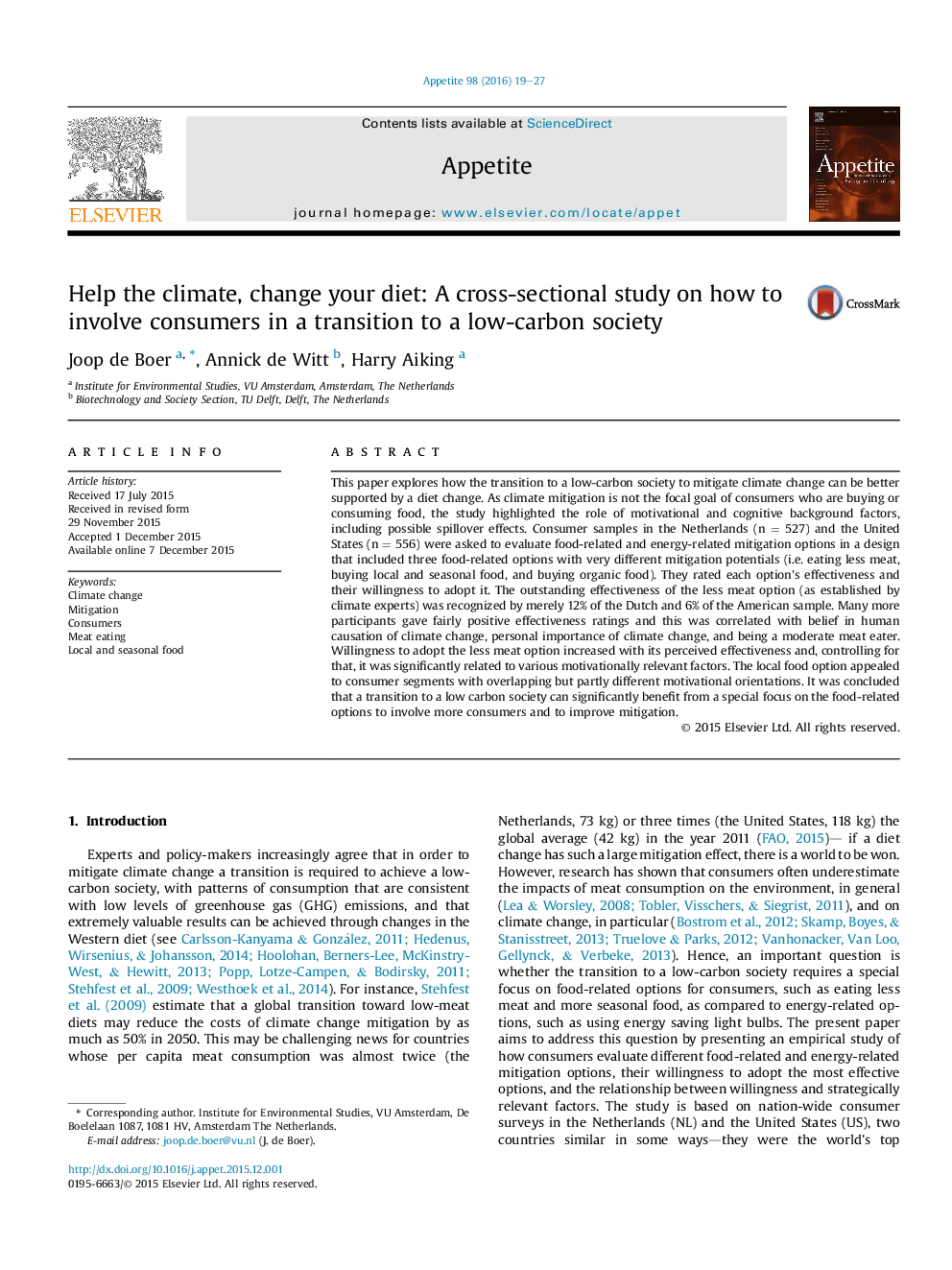| Article ID | Journal | Published Year | Pages | File Type |
|---|---|---|---|---|
| 7307744 | Appetite | 2016 | 9 Pages |
Abstract
This paper explores how the transition to a low-carbon society to mitigate climate change can be better supported by a diet change. As climate mitigation is not the focal goal of consumers who are buying or consuming food, the study highlighted the role of motivational and cognitive background factors, including possible spillover effects. Consumer samples in the Netherlands (n = 527) and the United States (n = 556) were asked to evaluate food-related and energy-related mitigation options in a design that included three food-related options with very different mitigation potentials (i.e. eating less meat, buying local and seasonal food, and buying organic food). They rated each option's effectiveness and their willingness to adopt it. The outstanding effectiveness of the less meat option (as established by climate experts) was recognized by merely 12% of the Dutch and 6% of the American sample. Many more participants gave fairly positive effectiveness ratings and this was correlated with belief in human causation of climate change, personal importance of climate change, and being a moderate meat eater. Willingness to adopt the less meat option increased with its perceived effectiveness and, controlling for that, it was significantly related to various motivationally relevant factors. The local food option appealed to consumer segments with overlapping but partly different motivational orientations. It was concluded that a transition to a low carbon society can significantly benefit from a special focus on the food-related options to involve more consumers and to improve mitigation.
Related Topics
Life Sciences
Agricultural and Biological Sciences
Food Science
Authors
Joop de Boer, Annick de Witt, Harry Aiking,
